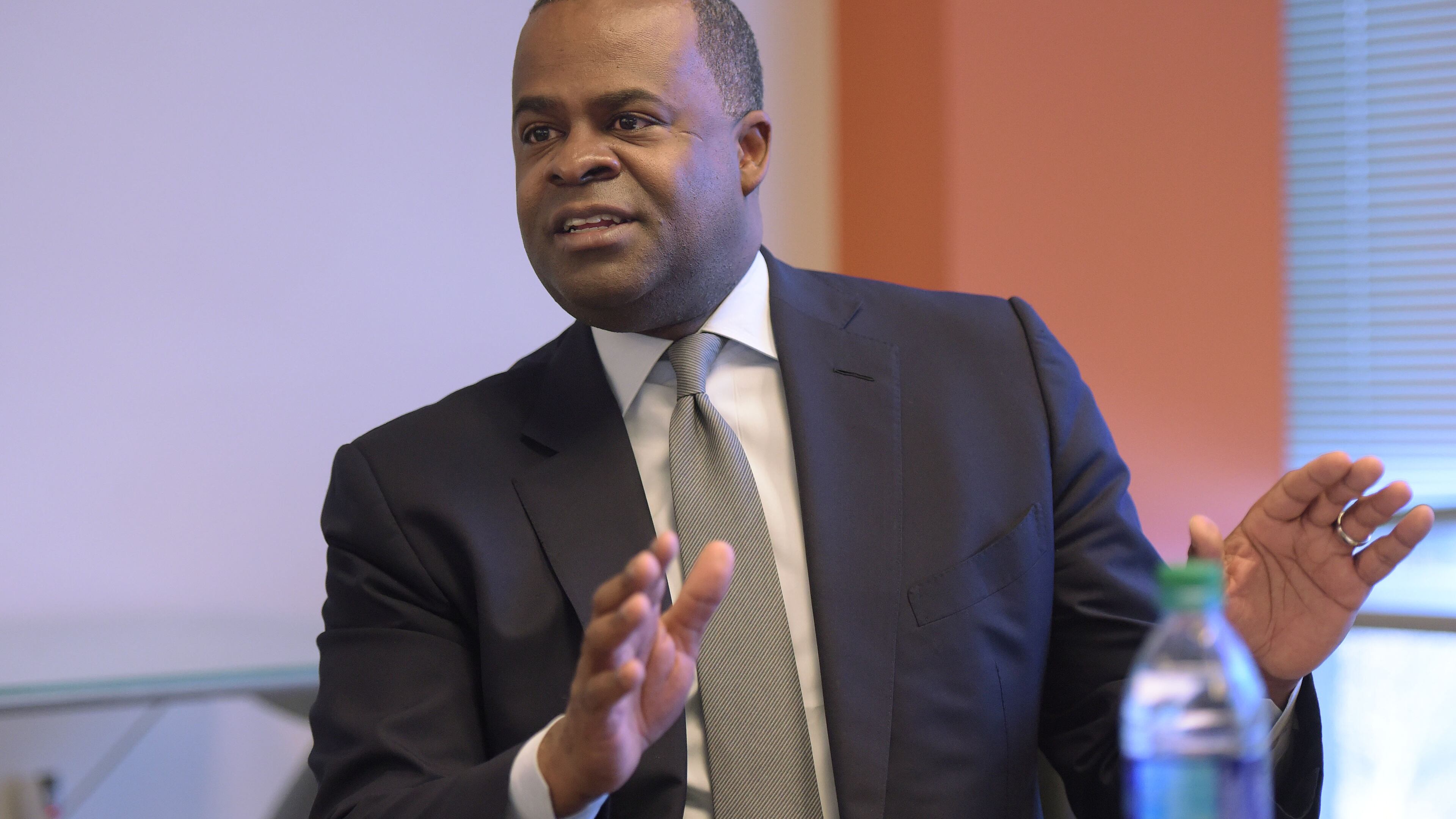Why Kasim Reed won't take a 'hostile' stance toward Donald Trump

Atlanta Mayor Kasim Reed was one of the loudest critics of Donald Trump in Georgia politics. He took Hillary Clinton's loss personally, joking - we think - about spending the day after the vote in a fetal position.
So it was surprising to hear him say Monday he won't view Trump's administration with the same adversarial approach that, say, prevails in Democratic strongholds in California or New York.
"It's not necessary to have a hostile relationship toward this administration, except for the decisions we're seeing right out of the gate," said Reed, saying it will take time for the Republican White House to get its footing - and for Democrats to properly calibrate their response.
He cast his explanation, which came at an Atlanta Journal-Constitution editorial board meeting, as a pragmatic one.
He'll oppose Trump's policies on a case-by-case basis, such as his criticism of the president's refugee policy over the weekend. But he won't take a blanket stance against Trump's administration, partly because the city needs federal support for some of its biggest asks during his final year as mayor.
"I remember the folks who called me for help, and hopefully the phone works both ways," he said of the last seven years, when Republicans worked with him as a Democratic liaison to the Obama White House. "I have to live a year where I have to lean on them."
When will he decide which policy to oppose and which to ignore? "It's like the standard for pornography – you know it when you see it."
That helps explain his decision to condemn Trump for threatening "sanctuary" cities , but his refusal to declare Atlanta one of them.
Trump has made clear such a move could risk federal funding, signing an executive order last week threatening to restrict funding to cities that have done so. While some Democrats are pushing him to make that "sanctuary" declaration - state Sen. Vincent Fort vowed he would if elected mayor - Reed said he's not ready to go that route yet.
"What I'm going to do is continue to meet the standards we put forth as a welcoming city," said Reed. "I'm not going to shift from our approach ... The work we've done to embrace refugees and immigrants is among the most forward-thinking approaches in the nation."
Reed, whose second term ends in January, brushed off the criticism from Fort and several of the other mayoral candidates seeking to succeed him. Cathy Woolard, a former city council president, has also been among his toughest critics.
"I poll more than anybody. Vincent Fort and Cathy Woolard - if not for (former Reed deputy) Michael Sterling - would all be in last place," said Reed. "The people in last place will take deep throws. So every time there's an opportunity to say something about me, Cathy Woolard will say something bad about me so they get covered."
(Fort, a state senator, responded: "I understand why the mayor doesn't like it when I say City Hall has lost its way. But that's been confirmed by the U.S. Attorney a couple weeks ago."
Said Woolard, a former Atlanta City Council president: "I've complimented Mayor Reed when I think he's doing the right thing. When I disagree, I'm going to speak out because I'm running for mayor and it's important for people to understand where I stand.")
The mayor said again he "definitely" will not run for statewide office in 2018 but that he'll be involved in plotting the party's future on a statewide and national level.
His first piece of advice: Democrats should have a "precinct-up" strategy of building votes and support from a grassroots base - but must resist the urge to over-correct.
"We lost an election by 80,000 votes in three states. When you're where we are, you can be like a person who comes within one play of the Super Bowl," he said. "And as opposed to making three to four changes you need to make, you make nine. And I don't believe we need to make nine."
His biggest concern about Democratic strategy? He worries about the "we can win without you" mentality of Democrats who write off vast swathes of the population to double-down on their likeliest voters.
"When you talk about winning without someone, they go about trying to find someone who wants to win with them," said Reed, adding that Democratic candidates must not neglect the white voters who once comprised their base.
"When I ran for mayor, I could lose Buckhead," he said. "But I couldn't lose it 90-10."

